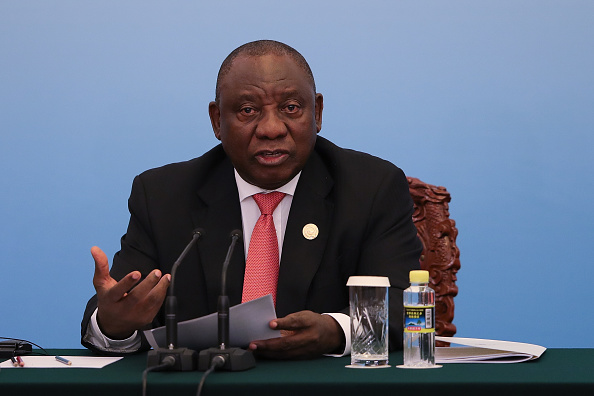Johannesburg – South African President Cyril Ramaphosa on Monday urged citizens to get vaccinated as the country battles an unprecedented surge in cases driven by the new Omicron variant.
The number of daily infections rose five-fold in the space of a week, from 2 828 on November 26 to 16 055 last Friday.
About a quarter of tests for coronavirus have been positive, compared to just around 2% of those tested a fortnight ago.
“We are experiencing a rate of infections that we have not seen since the pandemic started,” Ramaphosa warned in his weekly newsletter.
Omicron, detected by South African scientists 10 days ago, “appears to be dominating new infections,” he said.
“I call on all South Africans to go out and get vaccinated without delay,” he said.
ALSO READ | South Africa records 11 125 new Covid-19 cases
Ramaphosa, whose country is the worst-hit in Africa for Covid, last week hinted at making coronavirus vaccines mandatory.
Despite the rise in infections, fatalities remain relatively low. Just one coronavirus-related death was recorded on Sunday, when 11,125 new infections were diagnosed.
Scientists are keeping a close eye on the new variant to see whether it may be more contagious or virulent, or can side-step existing vaccines.
As we enter the fourth wave, and as the country gears up for the festive season, the urgent priority is for more people to get vaccinated. Scientific evidence shows that vaccination is the most effective means of preventing the spread of new infections. https://t.co/xTifscW7es pic.twitter.com/fLxMmID1zI
— Cyril Ramaphosa ?? (@CyrilRamaphosa) December 6, 2021
So far 14.8 million people have been fully vaccinated in South Africa, translating to around a quarter of the country’s population. The rate of vaccination is higher among adults.
Children aged from 12 years are eligible for vaccines in South Africa.
ALSO READ: Covid-19: South Africa is officially in fourth wave
With adequate supplies of the Johnson & Johnson and Pfizer shots, the government has set a target of vaccinating 70% of the population by year’s end.
Seeking to overcome vaccine hesitancy, the authorities at the weekend opened up pop-up sites offering jabs at shopping malls, bus stations, airports, churches and recreation centres.
Highly populated Gauteng province, which hosts the capital Pretoria and the financial hub, Johannesburg, accounts for most infections.
It is in Gauteng province where the first cases of Omicron were detected last month following a cluster of cases at a university.
Follow African Insider on Facebook, Twitter and Instagram
Picture: Getty Images
Source: AFP
For more African news, visit Africaninsider.com


